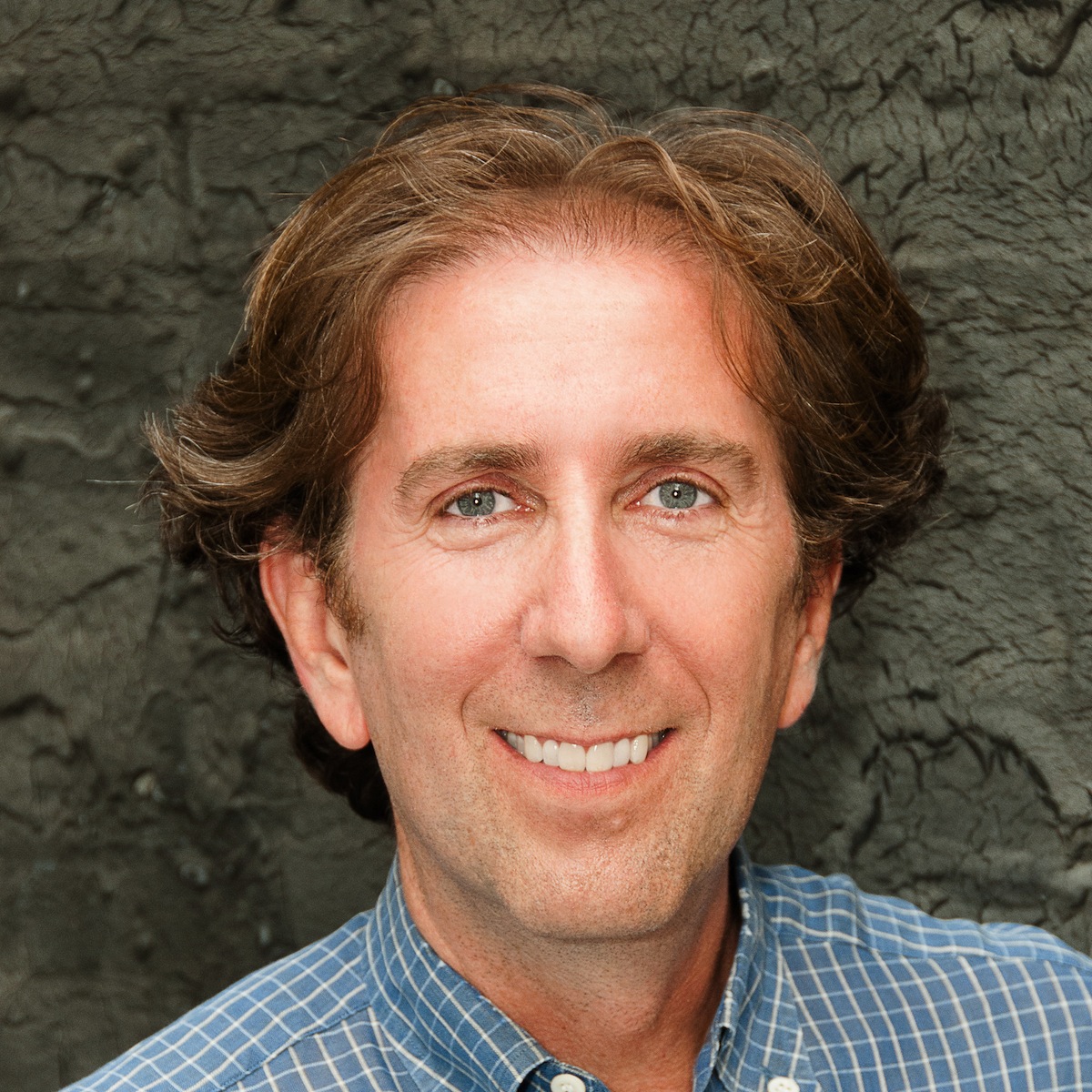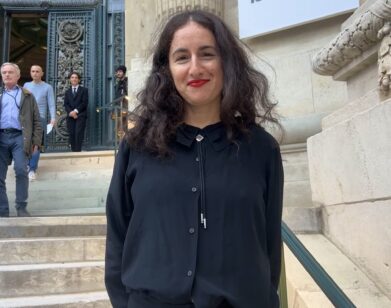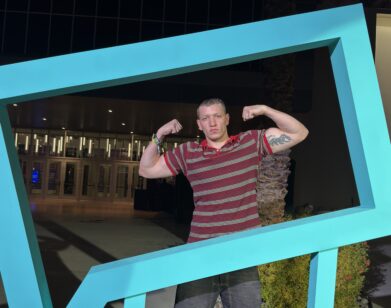D.T. Max on David Foster Wallace: Everything and More

ABOVE: D.T. MAX
D.T. Max’s 2009 New Yorker article “The Unfinished” was a studious effort to graft the pained interior life of writer David Foster Wallace onto the mythology that bloomed like a mushroom cloud in the year following his suicide. But however generous its intention, its scope—a single magazine article—meant “The Unfinished” was doomed to fail to tell the whole story; for so long, Wallace had concealed the complicated muchness of his life. A book simply had to follow.
With the new biography Every Love Story is a Ghost Story, Max reprises his role as literary docent to the Wallace estate. Calling on firsthand accounts from some of his most intimate relationships, spanning video store clerks to seasonal flings, the biography fills in the honeycomb of Wallace’s life with abiding sensitivity and spirit. It also delves into his inchoate offenses: generating the sort of approval he loathed, burdened by the wide shackles of a superlative intelligence, and mistaking violent obsessions for deep romance.
But as the title suggests, Every Love Story is A Ghost Story is most remarkable for the strong current of love that D.T. Max has directed toward the story of David Foster Wallace. We spoke with him about the trajectory that led both writers to meet in the text, rather than in life.
SHONA SANZGIRI: How did you come to do the New Yorker piece that led to this book?
D.T. MAX: There are a number of people at the magazine who would have been able to do the piece—writers, I mean. Among the other groups he reached, David Foster Wallace reached writers, you know?
I’d written a piece for The New York Times Magazine a number of years ago about how Raymond Carver’s editor Gordon Lish had rewritten some of his early stories against his will. We’d been talking about doing writer profiles for a while at The New Yorker, and the big resistor was me. But David was special, and the circumstances under which I’d be doing the piece were obviously quite different.
I had also been a huge lover of The Broom of The System. It was only when I started researching the New Yorker piece that I found out I was in love with the wrong book by David. I came upon a letter he wrote to Jonathan Franzen in which he says the book could have been written by “a smart 14-year-old”—it doesn’t even say “very smart,” and I was so bummed out. [laughs] It had spoken to me in a lot of ways that Infinite Jest didn’t. I know that’s unfashionable to say, but it’s true. I love that book, and the sense of a talent realizing itself and a young writer finding the words for the first time.
When I started writing the piece for The New Yorker, I knew nothing about David’s pain, didn’t know he was depressed. He kept it secret. He also kept his friends in separate compartments, so even though he had friends going back to rehab, they didn’t speak to his current state.
SANZGIRI: Do you think he consciously kept his life separated, to prevent being found out?
MAX: You remember that line in Infinite Jest where the narrator speculates that Hal is as in love with secrecy as he is with marijuana? I think that’s sort of a relevant line, despite the dangers of taking a single line from a novel and attributing it to the writer’s life. One of the dirty secrets about biography that writers have misgivings about is that it works.
But for whatever reason, it’s a kind of tool that’s wielded poorly, that makes writers really nervous. It’s a bit like evolutionary psychology—people are always invoking it for everything. “Why do men hang around asking women out? Oh, to improve their reproductive success,” every damn thing—religion, art—it can all be explained by evolutionary psychology. But in our hearts we know that evolutionary psychology is only sort of accurate, because it really doesn’t capture what’s most interesting about our lives. That’s why biography is only an okay tool. And I’m not excepting myself, that’s for the reader to decide if I’m one of those people to wield the cudgel enough to be a scalpel. I’m aware of the excessive power of the tool.
I think David was always in a lot of mental pain. When you are in that kind of pain, you divide up the world in a way that makes it least painful for you. I think he did it to survive.
SANZGIRI: I suppose you’ve become the outlet for a lot of people who still had lingering questions.
MAX: Including his friends. It’s an interesting position that I hadn’t anticipated, that one day for all that I don’t know, I would know more about David Foster Wallace than anyone else. While people were still in grief, I would somehow become the person to go to.
SANZGIRI: Is that difficult?
MAX: I draw limits. There are certain people who wanted to rely on me as a grief counselor; I made it clear that I don’t have standing to do that.
SANZGIRI: The style of the biography is very linear, very different from how David wrote. How do you think he would have reacted to that?
MAX: A friend of David’s said that if he had to have a biography, this is the one he would have wished for. Mostly because it takes him seriously as a writer, that his biggest impulse was to write. It takes some of the smoke away from the Saint Dave myth, and talks more about David the writer.
But I guess the question is would David be relieved that his biographer didn’t try to write like David? I think he was relieved, relieved when anyone didn’t try to write like him. Those letters he writes to the people, a couple of them quoted in the book—when they sound exactly like him—you don’t feel that his heart filled with joy knowing that he had this offspring. He literally had no offspring. I think metaphorically he was very uncomfortable with having descendants or disciples. I think he felt it was illegitimately earned, but for David, everything was illegitimately earned—the fame, the women, his wife.
I think he’d be grateful it wasn’t 600 pages.
SANZGIRI: When I skimmed through the book and saw the footnotes, I thought “Aha!,” assuming that it would read like imitation. But they’re more necessary to complete his story than as stylistic nods.
MAX: I think it’s a place for jokes, for things that are so coruscatingly bright I don’t want them to obscure the narrative. I like the idea that you have to slightly exert your right hand, while inserting your left hand on the page, to dig and pull up the work. In New Yorker stories, the tastiest bits are often in the parentheses.
SANZGIRI: Something that left readers so gobsmacked was the realization that he was not the exemplary person from the now infamous Kenyon College commencement address. You could arrive at an unfavorable conclusion for any artist whose interior life is the subject of a biography. Does learning about David’s life help inform our understanding of his work?
MAX: Any good biography has to got to lead you to the work. Many biographers have started out in love with their subjects and ended up hating them. Even those books still take you to the writer’s life. There’s something paradoxical that’s going on. Biography is fundamentally an act of love. That act of love may not feel very loving to the person who’s the object of it. We’re past that place as a culture… are you a baseball fan at all?
SANZGIRI: Oh, yeah.
MAX: So when I was a certain age, Jim Bouton wrote this book Ball Four, and it completely stunned everyone by portraying baseball players as foul-mouthed and horny. Things that only sports reporters had known before. Once Ball Four came out, which was certainly an act of aggression against the baseball community, but also as an act of truth-telling. Later books that came out depicting baseball players as foul-mouthed and horny could no longer be seen as an act of aggression, because Ball Four had already come out.
By the same token, to write a book that shows David is a human being in 2012 is quite a different action than it would have been. Moreover, I think that process is still continuing. There are things I didn’t put in the biography. I practice a kind of pruning. It wasn’t censorship, because the things that are in the book are probably more upsetting.
In a lot of ways David was posited by the larger cultures as sexless, like Drinion from The Pale King, the sexless man who when he listens, he listens so intently he literally floats off the chair. That wasn’t David. David was not ever sexless.
SANZGIRI: Clearly.
MAX: Right. That kind of smaller myth has been exploded. I think those were misconceptions and trivialities which blocked a deeper appreciation of him as a person, and—to return to your original question—as a writer. As I learned more about David, Infinite Jest became a richer and richer book for me. That would not be true of every biography. I’m not sure that a biography of Fitzgerald makes The Great Gatsby a more interesting book for me.
It may have something to do with the connection between an author and his pain. And David’s pain is so present in Infinite Jest, you sort of want to know something about it. Whereas with Fitzgerald, it’s all about covering up the pain. Certainly Fitzgerald suffered, but I think you can read The Great Gatsby quite separately. I feel the relationship of the discovery of the man behind the material and the material itself is less fertile than with Wallace. Maybe it’s because there are so many ways to be known, and David allowed himself to be known. That’s a theme in Infinite Jest—ways of being, or not being, known.
David never left off being human. There’s a story that’s either in a letter someone writes to David or an anecdote someone told me, but someone finds a copy of Infinite Jest in that classic 20s or teenage gesture in a used bookstore and just devours it. Then they bump into David somewhere and say, “I just read this and devoured it in six days and it’s changed my life and altered how I see the world. I want to be a writer.” And David turns to this young man or woman and says, “Don’t ever tell a writer you bought his book used.” [laughs]
It’s a thing about the ‘Saint David’ comment that bothers me. I think we need saints—they just have to look a little different. If you don’t have your feet on the ground, you just can’t achieve sainthood.
D.T. MAX’S EVERY LOVE STORY IS A GHOST STORY IS OUT NOW. THE AUTHOR WILL READ FROM THE BOOK AT WORD BOOKSTORE IN BROOKLYN ON WEDNESDAY, OCTOBER 24.






